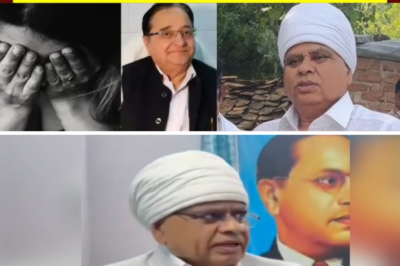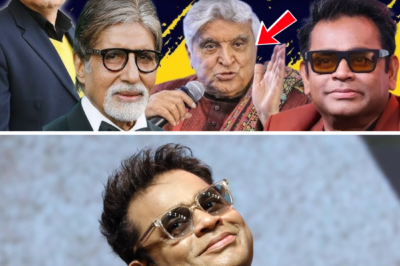PM Modi’s Cyprus Stopover Sends Strategic Message to Turkey Ahead of G7 Summit
As Prime Minister Narendra Modi prepares to attend the G7 Summit in Canada, a significant diplomatic move is making global headlines: Modi’s scheduled refueling stop in Cyprus. While on the surface this may seem like a routine logistical decision, experts and political commentators believe it carries a powerful geopolitical message—particularly aimed at Turkey and its allies.
The Route and the Message
Before heading to Canada for the G7 Summit (June 15-17), PM Modi will stop in Cyprus to refuel his aircraft. This is not just a technical halt; it is widely interpreted as a symbolic gesture directed at Turkey. The India-Turkey relationship has been tense, largely because of Turkey’s open support for Pakistan and its anti-India propaganda, especially on issues like Kashmir.
Cyprus, on the other hand, has been at odds with Turkey for decades. The island nation is divided between the internationally recognized Republic of Cyprus (backed by Greece) and the Turkish-occupied north, known as the Turkish Republic of Northern Cyprus (TRNC)—recognized only by Turkey. The situation mirrors the India-Pakistan dispute over Kashmir, with Turkey’s actions in Cyprus often compared to Pakistan’s in Kashmir.

Historical and Strategic Significance
Modi will become the third Indian Prime Minister to visit Cyprus, following Indira Gandhi in 1983 and Atal Bihari Vajpayee in 2002. The visit is seen as India reinforcing its longstanding support for Cyprus, which has consistently backed India on international platforms, including the UN Security Council, the Nuclear Suppliers Group, and on the Kashmir issue.
Cyprus is strategically located in the eastern Mediterranean, bordered by Turkey, Syria, Israel, Egypt, and Greece. Its geopolitical significance is immense, and Turkey’s occupation of northern Cyprus since 1974 remains a major flashpoint in the region. Greece and Cyprus have strong ties, and both share adversarial relations with Turkey—much like India’s relationship with Pakistan.
Diplomatic Chessboard: India, Turkey, and Their Allies
Turkey’s increasing alignment with Pakistan and China has caused concern in New Delhi. Turkey has provided diplomatic and military support to Pakistan, while also strengthening ties with China, Azerbaijan, Bangladesh, and Malaysia—countries often critical of India in international forums.
India’s decision to stop in Cyprus is seen as a counter-move, signaling that “the enemy of my enemy is my friend.” By strengthening ties with Cyprus and Greece, India is sending a clear warning to Turkey and its allies that New Delhi is ready to assert itself in the region’s complex power dynamics.
Why the G7 Summit Matters
India is not a member of the G7 but is regularly invited as a guest. This year’s summit in Canada is particularly significant, given the recent diplomatic tensions between India and Canada over issues related to the Sikh separatist movement and alleged anti-India activities in Canada.
Notably, PM Modi’s invitation to the G7 came at short notice, fueling speculation and controversy in Indian political circles. Some opposition leaders questioned the timing and motive behind Modi’s participation, but the government has emphasized the importance of India’s presence on the global stage.
First-Ever Visit to Croatia
After the G7, Modi will also visit Croatia—a first for any Indian Prime Minister. India and Croatia have been deepening defense and diplomatic cooperation, with both countries’ foreign ministers signing deals as recently as 2021.
A Broader Diplomatic Strategy
India’s outreach to Cyprus and Croatia is part of a larger strategy to build alliances that counterbalance the growing influence of Turkey, China, and Pakistan. By supporting countries that have stood by India in international forums, New Delhi is not only repaying old friendships but also crafting new coalitions in an increasingly polarized world.
PM Modi’s Cyprus stopover, though officially a refueling halt, is a calculated diplomatic message to Turkey and its allies. As global tensions rise and alliances shift, India is asserting its interests with subtle but significant moves on the international chessboard.
What do you think about India’s diplomatic strategy? Share your views in the comments below. Stay tuned to News24 for more updates.
News
रेप पर गैर-जिम्मेदार बयान और राजनीति की गिरती संवेदनशीलता: सवाल नेताओं की सोच पर
रेप पर गैर-जिम्मेदार बयान और राजनीति की गिरती संवेदनशीलता: सवाल नेताओं की सोच पर भारत में यौन हिंसा जैसे गंभीर…
महिलाओं पर शर्मनाक बयान, विपक्ष की Dirty Politics बेनकाब | Phool Singh Baraiya | ST Hassan | N18V
रेप पर गैर-जिम्मेदार बयान और राजनीति की गिरती संवेदनशीलता: सवाल नेताओं की सोच पर भारत में यौन हिंसा जैसे गंभीर…
रामायण Film के बायकाट की तैयारी, घुटनों पर आए AR Rahman l Chandra Prakash l Anju Pankaj
ए.आर. रहमान के बयान पर बढ़ता विवाद: कला, पहचान और बदलता बॉलीवुड प्रसिद्ध संगीतकार ए. आर. रहमान द्वारा हाल ही…
भारत में A R Rahman जैसे एक नहीं अनेक हैं ! | Bollywood, Amitabh Bachchan | Global Harsh
ए. आर. रहमान का बयान: क्या वाकई बॉलीवुड में सांप्रदायिक भेदभाव है? हाल ही में मशहूर संगीतकार ए. आर. रहमान…
जब टूटना ही शुरुआत बन गया
जब टूटना ही शुरुआत बन गया कैलिफ़ोर्निया की सुबह हमेशा की तरह सुनहरी थी। सूरज की किरणें ऊँची इमारतों के…
अमेरिकन करोड़पति जो बिजनेस में बर्बाद हो चुका था लेकिन भारत बाते ही उसकी जिंदगी बदल गई थी 😱
जब टूटना ही शुरुआत बन गया कैलिफ़ोर्निया की सुबह हमेशा की तरह सुनहरी थी। सूरज की किरणें ऊँची इमारतों के…
End of content
No more pages to load










